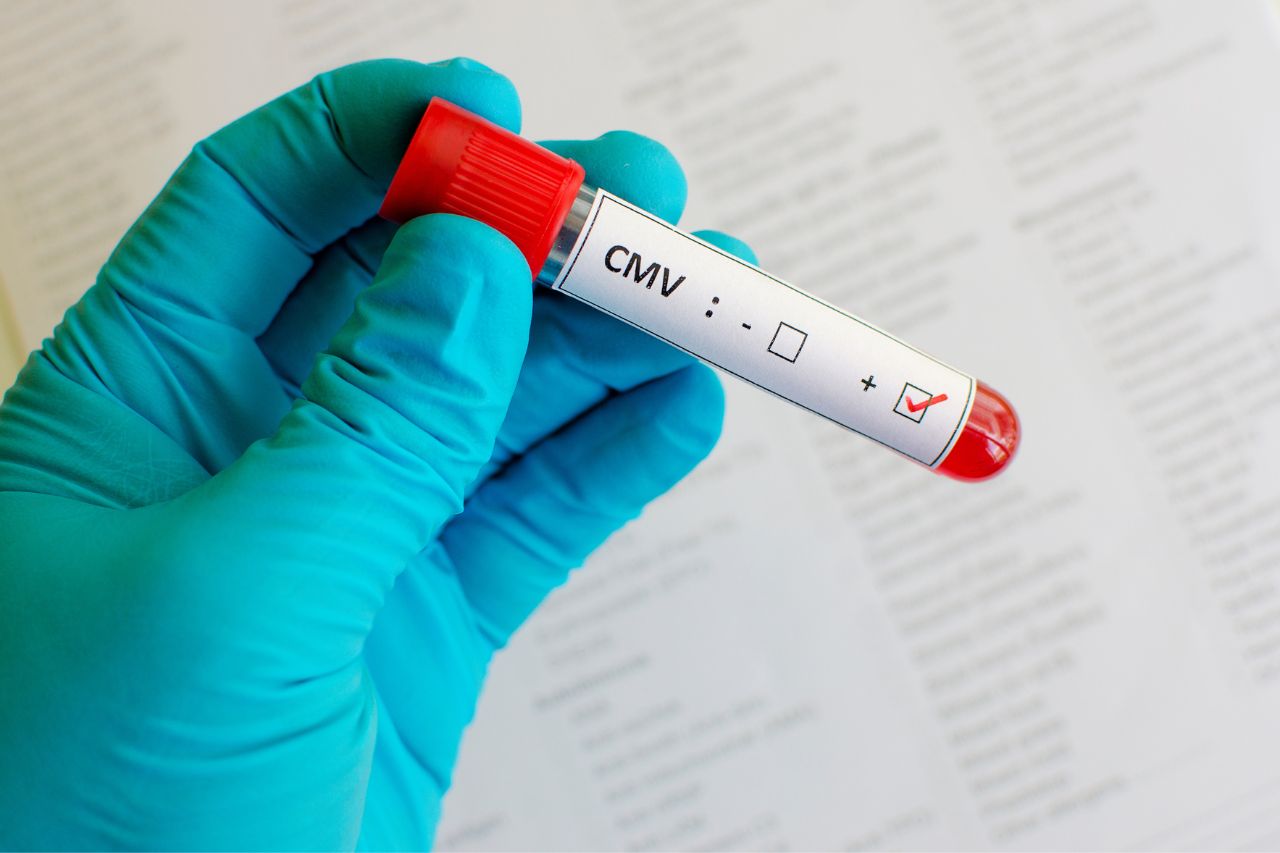What Is Cytomegalovirus?

Cytomegalovirus is a common virus that rarely causes issues for healthy people. Also called a CMV infection or just CMV, the virus can be problematic for pregnant people or those with a weakened immune system. And for people with recent organ, bone marrow, or stem cell transplants, a CMV infection can be fatal.
This article provides information on the cytomegalovirus, including CMV symptoms and treatment.
Testing can be important for pregnant people, as the infection can affect an unborn baby. If you’re pregnant and test positive for CMV, your doctor will likely order an amniocentesis — testing of amniotic fluid extracted from the womb. If your doctor thinks your baby might have the virus, you should have them tested within three weeks after delivery. Further testing of liver and kidney function may be needed if your baby has CMV.
Healthy adults and children who have CMV typically don’t need treatment. If you’re experiencing mild symptoms from an initial infection or reactivation, you should get plenty of rest to allow your body to recover.
For others, doctors can prescribe antiviral medications. These drugs can’t eliminate the virus from the body, but they can help control it by slowing its reproduction rate.
This article provides information on the cytomegalovirus, including CMV symptoms and treatment.
Cytomegalovirus Classification
There are three types of CMV infection:
- Congenital CMV. This type of CMV is when a baby gets the infection from their mother and has it at birth.
- Primary CMV. This is a person’s initial infection with the virus, which typically causes no symptoms or mild ones at most in healthy people.
- Reactivation CMV. This occurs when the dormant virus becomes active again, often because of a weakened immune system.
Cytomegalovirus Symptoms
People who contract cytomegalovirus will have it in their bodies for the rest of their lives. However, the virus probably won’t cause significant symptoms if they remain healthy. At most, they may experience mild fatigue, fever, muscle aches, swollen glands, and a sore throat when initially infected or if the virus is reactivated.Cytomegalovirus symptoms in adults
Adults with complicating health factors who develop a CMV infection may experience problems in various organs, including the following:
- Eyes
- Esophagus
- Stomach
- Intestines
- Liver
- Lungs
- Brain
Cytomegalovirus symptoms in babies
Babies with congenital CMV often don’t have symptoms initially. Those who do have them at birth may experience:
- Premature birth
- Low birth weight
- Purple skin rash, blotches, or both
- Jaundice (yellowing of the skin and eyes)
- Pneumonia
- Enlarged liver with poor functioning
- Microcephaly (abnormally small head)
- Enlarged spleen
- Seizures
Diagnosis and Treatment of Cytomegalovirus
Doctors diagnose cytomegalovirus by having a lab test a patient’s blood, other bodily fluids, or tissues for the presence of the virus.Testing can be important for pregnant people, as the infection can affect an unborn baby. If you’re pregnant and test positive for CMV, your doctor will likely order an amniocentesis — testing of amniotic fluid extracted from the womb. If your doctor thinks your baby might have the virus, you should have them tested within three weeks after delivery. Further testing of liver and kidney function may be needed if your baby has CMV.
Healthy adults and children who have CMV typically don’t need treatment. If you’re experiencing mild symptoms from an initial infection or reactivation, you should get plenty of rest to allow your body to recover.
For others, doctors can prescribe antiviral medications. These drugs can’t eliminate the virus from the body, but they can help control it by slowing its reproduction rate.



